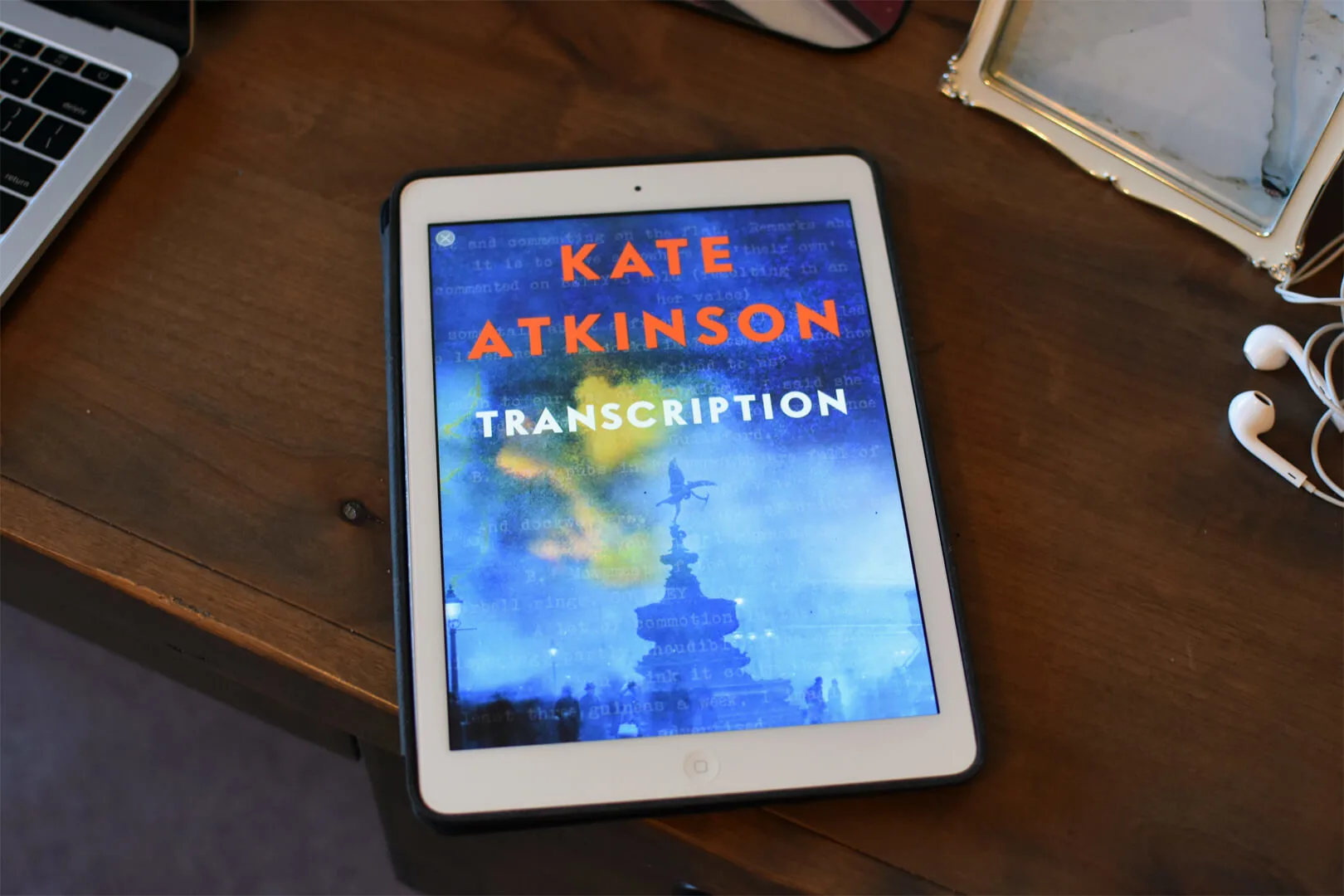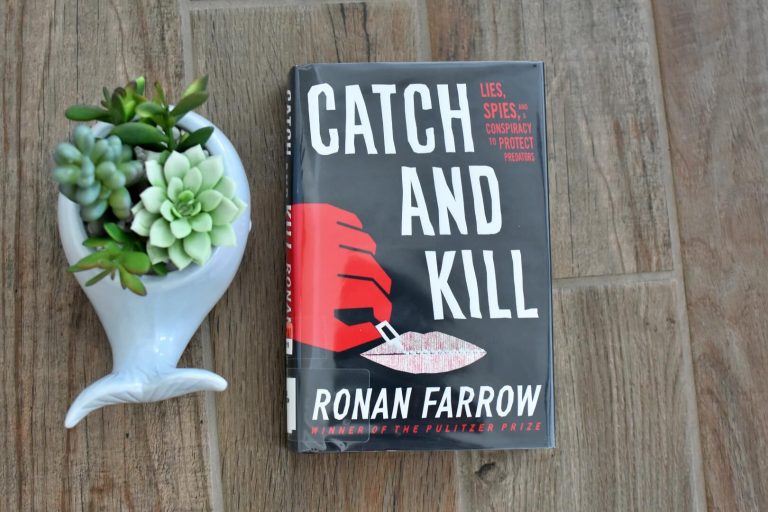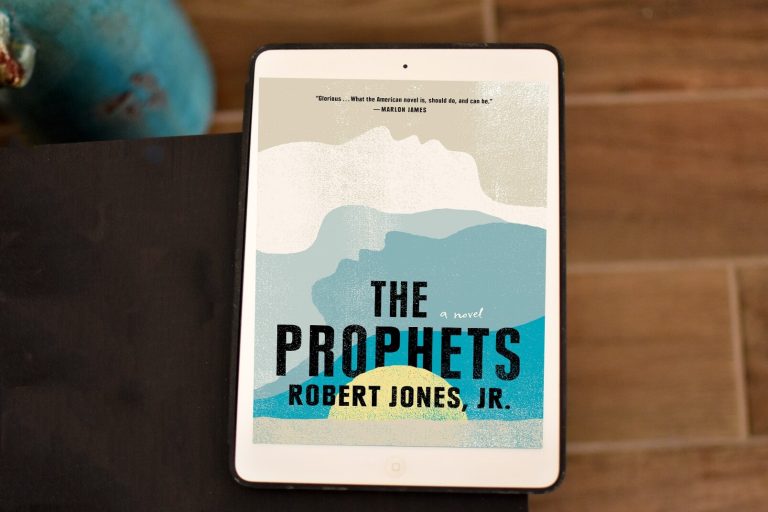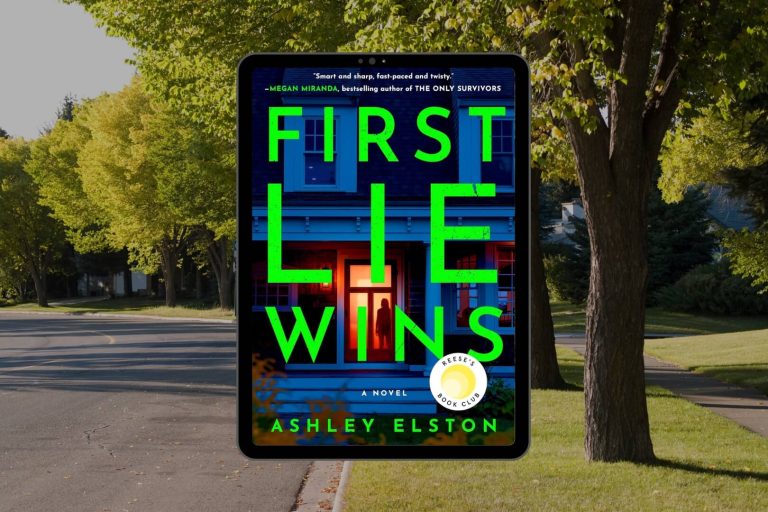Editorial Note – I was given a copy of Kate Atkinson’s Transcription in return for a review.
Transcription by Kate Atkinson is a British spy novel full of unexpected twists and turns. It’s a historical fiction story with some mystery and even humor, too. I really enjoyed it.
If you’ve read any of Atkinson’s work in the past, you know she tends to write in a complicated structure. For instance, in her highly-acclaimed novel Life After Life, the unexpected story structure is somewhat similar to the movie Groundhog Day where the protagonist must re-live her life over and over until she accomplishes a seemingly impossible task. While Transcription isn’t quite as complicated in structure and subject matter, there’s still jumps in time, lots of characters and plenty of deception (including a big one revealed at the very end).
The story follows Juliet Armstrong, who was recruited when she was 18 to join the British Secret Service during WWII. Her job is to monitor the comings and goings of British Fascist sympathizers. Juliet transcribes the secretly recorded conversations with an undercover MI5 agent named Godfrey Toby. There’s also a time jump to the 1950s when she’s working on educational radio programs for the BBC and her past comes back to the haunt her. For full synopsis, click here.
Authentic writing
Kate Atkinson is acclaimed author for many reasons. One big standout is how authentic her characters sound to the time period they’re in. Reading this novel, you feel transported to the 1940s and it’s very British from the people drinking tea and eating biscuits in front of a portrait of the King. I was surprised at how much humor the book has for such a serious topic. But again, there’s a sense of realism that making a joke helps ease tension with pretty much no matter what situation you’re in.
Juliet is a complicated and engaging character. When we follow her in the ’50s, we know she has plenty of secrets and the reveals come slow and steady. She’s a likable character; extremely naive and yet, intelligent and witty. She’s also a pathological liar, which is one reason the Secret Service recruited her as she wouldn’t have any trouble working undercover. And that’s just what happens, when it’s decided that she can do more than just transcribe, she’s assigned to also assume another identity. This is where the story takes an exciting turn and we start to eventually question which side any of the characters are actually on.
Atkinson also clearly does her research. She was inspired to write the novel after learning about a real-life British agent who posed as a Gestapo spy. She told NPR the following:
He had been undercover for quite a long time, I think, in fascist groups, so they knew him. And he invited them to come to a flat where they would have tea and biscuits — giving me my new favorite phrase, which is “biscuit interval,” because you see that typed in the transcripts quite a lot — and they would try and give him information. They particularly were not recruiting, but rooting out new sympathizers. So they would come and say, “Oh, Mrs. Smith in Bolton, she’s very pro-the German government.” They were on the whole, in retrospect, harmless. But he would sit there and say, “Mmmhmm, yes, oh, I see.” And all this information would come flowing in. What I thought was really fascinating was that these people, these traitors, lived and died without ever knowing that the man that they thought was a Gestapo agent was in actually an MI5 agent. …
Make sure you Atkinson’s notes at the end of the novel where she provides more context on her research for the story.
Relevant to today
There are many historical fiction books about WWII where it becomes the question of what makes one stand out. This one clearly does for the interesting real-life concept of an agent undercover posing as a Nazi-sympathizer. But something that also resonated was how much this story resembled key political issues of this day. This passage especially:
Do not equate nationalism with patriotism…Nationalism is the first step on the road to Fascism.
Transcription also shows what it was like in Europe when the outcome was unknown. People didn’t know how long the war would last and how it would change the map forever. In a way, it’s going through this again with Brexit, there’s no road map of what will happen next. If anything, this novel serves as a reminder that history truly is doomed to repeat itself. Over and over again.
Bottom line: This book is about living with the choices we make with plenty of wit and empathy. There’s also some adventure and suspense.
Thank you to Little, Brown and Company and NetGalley for the advanced copy!
[hoops name=”buy”]






